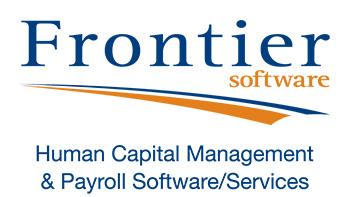The general election in June resulted in a significant shift in the political landscape in the UK and as the dust settled, it became clear that substantial change lay ahead.
During the months leading up to the election, manifestos were scrutinised and media attention locked onto headline-grabbing issues designed to win over voters.
However, for those focused on the future of Human Resource management, it’s now time to reflect on the potential impacts the change in government may have on both employer and employee.
Setting aside political affiliations, HR must now plan for a wave of new policies and initiatives aimed at strengthening employee rights, improving workplace conditions, and fostering equality. These proposed changes could bring significant reforms, from wage increases to enhanced job security, and an emphasis on workplace diversity and inclusivity. The legislative agenda of the new Labour government prioritises “making work pay”. This is an ambitious initiative that will entail a comprehensive overhaul of employment law and tax regulations, with headlines including:
- Unfair dismissal rights from day one
- Statutory sick pay from day one
- Banning zero-hours contracts
- Increasing wages
There is likely to be a big impact on employee rights and protections. HR departments will need to adjust their employment practices to comply with new rules, ensuring that contracts and working conditions meet heightened legal standards. Additionally, the new government is likely to push for higher redundancy pay and extended notice periods, affecting how HR manages redundancies and restructures.
Raising the national minimum wage is also on the cards and any increase will directly affect payroll budgets. HR professionals need to reconsider salary structures to ensure compliance, not just at the lowest pay scales but potentially across the entire organisation to keep wage differentials and avoid wage compression issues, which can so easily damage workplace morale. The Labour government will advocate for enhanced employee benefits, including more generous parental and bereavement leave, flexible working rights, and improved sick pay. HR departments may need to revise policies to align with any expanded benefits, which could involve reconfiguring leave management systems, updating employee handbooks, and ensuring every employee is kept informed about their new entitlements.
The Labour party has policies that typically emphasise equality and anti-discrimination measures and HR departments could see new mandates aimed at promoting diversity, equity, and inclusion (DEI). This may also include stricter gender pay gap reporting, more rigorous anti-discrimination laws, and initiatives to boost the representation of minorities and disadvantaged groups in the workplace. HR will need to implement comprehensive DEI strategies, conduct regular training sessions, and ensure compliance with new reporting requirements. HR could also see an increase in government-sponsored training programmes and initiatives aimed at upskilling the workforce. As a result, they would need to collaborate with training providers and integrate new learning opportunities into development plans. There is also likely to be changes in immigration policy, particularly in relation to labour market access for non-UK workers. HR teams should keep themselves informed about new immigration rules and adjust their recruitment strategies accordingly.
Amid all the potential change, work-life balance and employee wellbeing will remain a priority and the positive steps taken in recent years will hopefully be built upon and strengthened. The new government has promised to take action to “promote a positive work-life balance for all workers”, and to prevent homes “turning into 24/7 offices”. The risk of “always on” working has grown since the pandemic, with technology meaning that work is often within easy reach. Labour is working toward “right to disconnect” legislation that will give employees the right to disconnect from work and not be contacted by their employer outside of working hours. Legislation allowing workers to disconnect from work has been increasingly adopted around Europe, in recognition of the damaging effect that endless work demands can have on wellbeing and family life.
The months ahead will bring substantial changes to the employment landscape in the UK. HR will need to be proactive in understanding and implementing the many new regulations and policies aimed at improving employee welfare, enhancing equality, and ensuring fair practices. By staying adaptable and informed, HR can be at the very forefront of the proposed changes and alert management and employees to what is on the horizon. Effective navigation of the changes will contribute to a positive and legislatively compliant workplace. In conclusion, if a Labour government means a “new deal for working people” is on the cards, then the HR department should ready themselves for change.
Frontier Software has been delivering software solutions to support payroll teams in the public sector for 40 years. Date driven software with highly configurable automation tools ensures interactions that create the right balance for your organisation and your people. Real-time data is readily available for accurate and informed decision making.
More Information:
Contact Frontier Software on 01276 456902, email sales@frontiersoftware.com or visit our website www.frontiersoftware.com.











